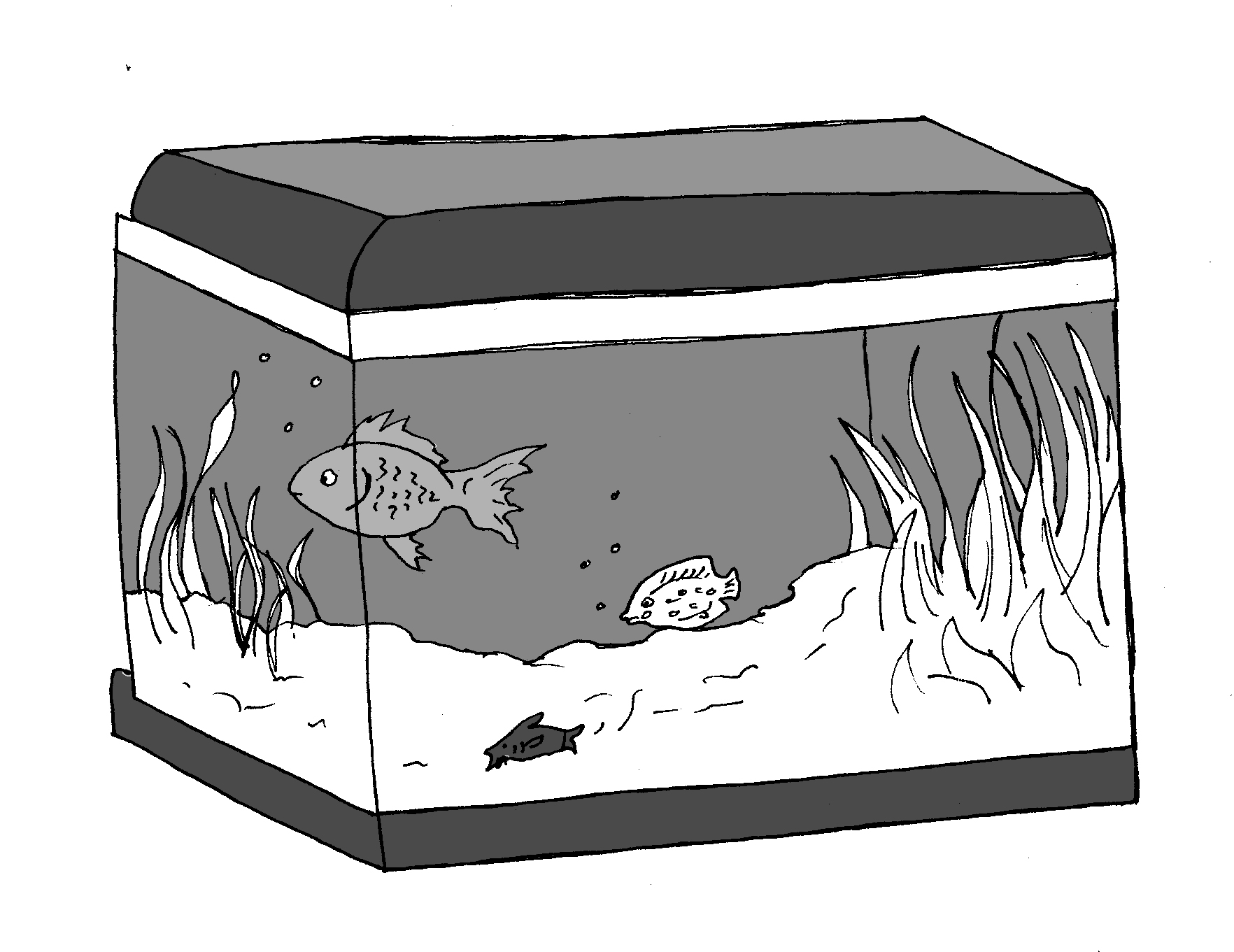A year of grief at Bowdoin
December 1, 2017
 This
piece represents the opinion of the author
.
This
piece represents the opinion of the author
.
 Kodie Garza
Kodie GarzaThere are three fish that live in a tank in the waiting room of the Counseling Center on College Street and every week I get to spend a few minutes just staring at them. One is fat and large, it swims slowly and only turns just as it reaches the glass wall. One is mid-sized and floats along the bottom, brushing the fluorescent green and blue pebbles with its fins and whiskers. The last one is small and darts throughout the tank, with seemingly no mind to direction but a purpose in its fins.
I first met these fish last January, almost two months after I found out during the final weeks of abroad that I lost one of my oldest, most loved friends to depression. The grief consumed me in waves, washing away any pillars of stability and the control of emotion that I thought I had built in my life. I expected these waves to subside before my return but by the time I came back to Bowdoin, it felt like I could barely keep my own head afloat.
Grief consumed me differently as the year went on, just as it effects other people in completely different ways. For me, it felt like muffled cries in the 3rd floor study rooms of HL, long weeks of feeling like I could not call home, and the piling up of assignments because of my own inability to even open a book. It felt like speaking an unknown language, forcing myself to try to explain to a Dean why I thought I needed to pass/fail a class and having to hear that my grief was probably not a compelling enough reason to petition the committee, and figuring out how to talk about and trust love again.
I learned to meditate every night before bed and take walks alone, to pass my weekends without alcohol and my weekdays without every minute pre-scheduled, to focus on the memories of the snuggles and canoe trips and smiles and big city adventures and laughs.
I attended Grief Group and individual counseling sessions as I began to force myself to return to the outward-processer that I had once been. I know that without these resources and without my friends who loved me so much, I would have been at even greater of a loss at trying to find myself again on this campus. The love was shown to me on walks when I needed to process, knocks on the door when my sobs could be heard throughout our apartment, and continued patience as I figured out how to live at Bowdoin with the grief.
And yet, mourning the death of a friend in a community which did not share this grief was exhausting, all-consuming, and at worst, painfully isolating. It took me months to begin to truly talk to my parents again, to write for myself, and to tell professors and bosses why it seemed like I was so far away sometimes. Even now, I am still learning how to respond when someone asks me about my time abroad or my Junior Spring.
I write this because every time I sit down in a rowing shell or smell the Maine pines or talk to someone with freckles on the bridge of their nose, I think about my friend. This is not obvious to anyone else though, unless I say something. So, let this be my piece explaining a truth about my life and more importantly, let it serve as a small token of my own investment in creating emotional vulnerability and honestly about what might be hard on this campus.
There is a lot that I still do not know about my grief and perhaps even more terrifyingly, a lot that I do not know about love and happiness and the everyday decision of living. What I do know, however, is that every week I am privileged enough to be able to walk into the Counseling Center and spend a few minutes considering the three fish within that tank. Sometimes I am the big fish moving slowly and sometimes I am the midsize fish hiding at the bottom, searching for something along the way. Most of the time now, though, I am that small fish, swimming with energy and appreciation for all the space and time I have left to grow.

Comments
Before submitting a comment, please review our comment policy. Some key points from the policy: